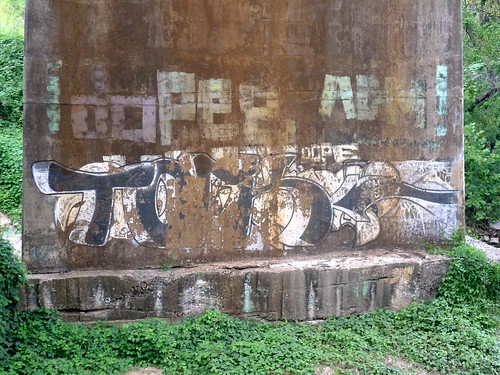“Customers Are Not Happy With The Price Increase” – Tork Motors CEO On FAME 2 Subsidy Revision
Tork #Tork


For enthusiasts, Pune-based EV startup Tork Motors is well known for building Asia’s first electric bike to compete in the Isle Of Man Electric GP. And for discerning buyers, Tork was the force behind India’s first premium, sporty electric commuter bike, the Kratos. We got to interact with the founder and CEO Kapil Shelke, and here are the highlights:
“Customers are not happy with the price increase” – On FAME 2 subsidy revision
The sudden revision of FAME 2 subsidy took the industry aback, including Tork Motors. Kapil says, “So you do a product-price-market fit. I think the price shifted, so the product fit in that particular market will change, and that’s how, I think everything is happening. Also, the customer might pre-buy the vehicles… And now, it’s coming back. It’ll take about a month or two, let’s say a quarter, for people to understand this is going to stay.”
“I think the whole industry is bouncing back to the original numbers, slowly slowly getting there. I think the customers are not happy with the price increase, they’ll never be – any customer.”
Talking about the future of the subsidy, he said, “So there are a lot of channel talks happening…. The DHI minister keeps on saying that it is going to continue till the FAME 3 comes in. But unless and until there’s a whitepaper or sort of something that comes out, I won’t comment on it. Currently, I think there’s enough capital to at least sustain for six months at the current rate. Let’s say December (2023) to March (2024) will have subsidies based on the current capital that they have remaining.
When asked about how a post-subsidy scenario would be, he said, “I don’t think their intent is to completely do away with subsidies, I think the intent might be to phase it out slowly. And you’re right, it might not happen in six months, it might happen in three years. That’s the planning the government might do.” He also pointed out the need to add more parameters to what the subsidy covers. He cited the inclusion of hybrid vehicles as an example. Summing up, he said, “If you ask me, lesser the subsidy, the better. Because, when you build for a market which is price-sensitive, people will understand what products you’re building. Consistency is the key in pricing.”
Upcoming affordable EVs:

Kapil also revealed some interesting details about the launch of its upcoming, affordable electric bikes. We have detailed them in a dedicated story, check it out here.
“We could solve a larger problem” on Tork’s planned charging network

Get latest updates on the automobile community
Login Now
At the launch of the Tork Kratos, the Pune-based startup had also announced its initiative of setting up a charging network called “T Net”. While the plan was to set up a network of chargers in Pune first, followed by other prime cities, things have changed now.
Kapil said, “We started deploying the T Net and realised it is only for us. But we could solve a larger problem, so we delayed our plan, and now we are installing larger chargers, under the Bharat Charge Alliance, and these are interoperable.”

Bharat Charge Alliance is an open platform consisting of cross-industry stakeholders ranging from OEMs to component manufacturers and energy providers who work together to form an interoperable charging infrastructure. Kapil says they had worked for about a year and a half on this platform, and also mentioned that users will get to try the first co-created charger in Pune soon. When asked whether the government should take more steps to standardise the charging ecosystem, Kapil replied, “Even if the government says this (standardising charging), there has to be an implementation committee.”
He also pointed out, “The Bharat Charge Alliance works in conjunction with what the government says rather than trying to implement something on its own.”

With this alliance, Kapil aims to solve multiple problems such as streamlining charging protocols, compatible chargers made by supply chain vendors, and OEMs to adopt the standardised system. With widespread adoption of this interoperable platform, not only Tork Motors but all other EV makers who are a part of it will be able to save up costs when it comes to establishing a charging infrastructure. He also added that the costs of using a Bharat Charge Alliance charger will depend on whoever is installing it at the particular point. That said, the charges will be free for Tork customers for the first two years.
“India is a hard market to crack” – on the potential of India becoming a hub of EVs

“Fundamentally India is a very hard market to crack. You have to build the best in quality and the best in price. So it’s a very different problem to solve, it’s a harder problem than let’s say the Chinese or some other markets.” Though the Indian market is challenging, Kapil is bullish about EV adoption. He said the subsidies are already helping the EV industry, and that the penetration is at 5 percent. He says any new technology crosses 5 percent or 10 percent (penetration), the early adopters have already bought it, followed by the other chunk of the people who will buy it as soon as the cost of the technology comes down. “I wish it was three years, but I think charging is one problem that we’re trying to solve, and if that gets solved in the next three years, then it’ll further help adoption of comparable electric vehicles.” Realistically, Kapil expects India to be the hub of premium EVs in about five years.
Working on upcoming, more budget-friendly electric motorcycles as well as charging solutions, Tork Motors sure seems to have a lot going on. The future sure seems literally and metaphorically electrifying!